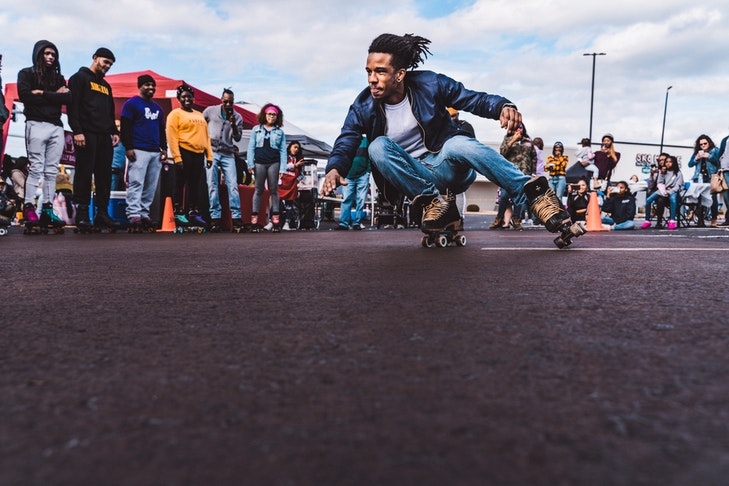Branding and Influencer
Influencer Marketing: Why It’s Important to Have an Authentic Following

© Jake Ryan / Pexels
There are many strategies for success in the world of influencer marketing, however, some are more underhand and potentially damaging for your brand than others. Here, we show you which strategies and schemes to avoid, and examine the importance of being authentic.
Although influencer marketing is set to be a $2 billion industry in 2019, with increased opportunities and mainstream awareness, one of the biggest issues to tackle is fraud.
There have been many articles about how easy it is to get brand work with a fake following. Last year, Unilever was just one company that announced it would no longer work with influencers who “buy” followers.
There’s massive pressure for an influencer to grow on Instagram, impress brands and beat the algorithm. It’s no surprise that companies have popped up claiming that they can boost your following for a small fee.
We’ve identified a few fraudulent practices and explained why they won’t work if you want to grow a sustainable business. As we’re involved in a form of marketing that’s judged on being authentic, any misjudged shortcuts could have a negative impact on the industry as a whole.
Buying Followers, Likes, and Comments
This is the most obvious example of fraudulent activity. A bot is an automated piece of software that can engage in the name of the influencer by following a certain hashtag or liking at certain times; when this happens, thousands of followers, likes, or comments can appear on your account within a matter of minutes.
Why It Doesn’t Work
These accounts may make your content look popular, but if you look beyond the generic “Good job!” comments, these are clearly not worthwhile followers to have if you want to work with brands.

You can never trust an automated service to represent your brand. There is always room for error; plus, there’s a real risk that a bot will leave inappropriate comments or connect with the wrong accounts. This could result in you losing followers and the trust of your audience.
It’s important to stay focused on the end result, rather than short-term financial gain. Successful influencer marketing should result in your audience being interested in what you’re promoting and making a purchase.
If the account isn’t real, or isn’t relevant to your content, then it’s not going to result in genuine engagement or sales. It’s also fraudulent, if a brand is paying to access an authentic following that you can’t deliver.
The “Follow Unfollow” Method
There are bots that will follow accounts in the hopes they will follow back. The bot then unfollows a few days later.
Why it Doesn’t Work
This can be an extremely frustrating practice if you’re on the receiving end and can reflect negatively on your brand. You don’t want people to follow you out of obligation.
Loop Giveaways
A group of influencers will pool money to buy a prize and post the giveaway on a specific day. Entrants need to comment and follow all of the accounts in the loop to potentially win.
Why it Doesn’t Work
Although this may give your account a short-term boost, the majority of people who have ‘entered’ unfollow once they realise they haven’t won the giveaway.
If you look closer at the accounts of people taking part, they’re constantly losing followers and have to keep posting these loops to stay afloat. It’s a vicious cycle and is difficult to maintain.
Claire Bear London admits that she ended up destroying her organic engagement through a recent giveaway and gained a large influx of followers from South America.
While this may seem appealing, if you’re based and looking to work with brands in the UK, a large following from Brazil won’t be relevant. To make things worse, the majority of accounts left were spammy and she had to delete them manually.

These giveaways are sometimes hosted by external services and you have to be mindful of their incentives for taking part. Will the prize really be chosen fairly and what happens to the extra money paid? It’s far more worthwhile to use competitions to maintain your existing audience and keep them to Instagram Stories.
It’s a Marathon, Not a Sprint
Running a successful and sustainable Instagram business is about the long game. It may be tempting to get more money, opportunities or even the coveted “swipe up” function, but it’s so important to remember your motivations.
If you want more brand opportunities and money, then brands will want to see results. There’s also a risk that people will lose trust in influencer marketing if people keep cheating the system. Although it can take time to build a genuine audience, it’s so much more impactful to know that you’ve inspired someone, rather than just seeing a generic “Top photo!” comment.
How to Use Events to Grow Your Blogging Business
Ever wondered why you’ll spot your favourite bloggers at fancy dinners or showcasing new collections on Instagram Stories? Over the past decade, blogger events have evolved from smaller cupcake-filled gatherings to complex, week-long island getaways.
They’re an important part of the influencer ecosystem, but it’s important to understand why they take place and how to make the most out of them.
The Invites to Expect
Press days and product launches are probably the most prominent events on social media. You may get invited to drop in and see a collection alongside journalists, or attend an intimate breakfast to celebrate a new fragrance.
There are also blogger-specific events, tailored around Instagram-friendly activities such as flower arranging. Each example is usually part of a broader marketing campaign, designed to get you to write a post or share photos across multiple platforms.
How to Get On The List
It’s so important to be patient and realistic, and not expect to be taken on an all-expenses trip straight away. Your first focus should be building relationships with the brand and showing an interest in their products.
That could involve buying them yourself, tagging the brand on Instagram and using any hashtags they’ve created. Hopefully, this will lead to their social-media manager getting in touch but if nothing happens, then it’s worth sending a direct message and asking for a contact email.
According to an Econsultancy report, 54% of brands search for influencers manually, so you could be doing them a favour by getting in touch first.

The initial message shouldn’t be about demanding an invite to the next shindig, but should instead simply ask if you can be added to the press list and considered for future events.
Always leave the recipient in a situation where they can comfortably say no. Sending over any previous coverage means the brand can see whether you’re a good fit with a genuine interest.
You’ve Made It… Here’s What to Do Next
Although it’s easy to get distracted by manicures and free food, you need to use your time wisely. Your main aims should be engaging with the product, chatting to the influencer contact and finding out about future opportunities. This gives you an idea of whether they just work on a gifting basis, or if the potential exists for larger projects.
Ideally, you should follow up via email within 48 hours and send over any links to social-media posts. Check in every six-eight weeks, so you remain in their thoughts.
In short, events are a great way to get inspired, build a network and understand the business of blogging. You may be contacted directly by brands, or via PR, influencer, SEO and media agencies. Each comes with their own objectives and with time, you’ll figure out your own approach for creating opportunities.
They key is to build lots of connections simultaneously, while creating content that you’re passionate about. Your following needs to be relevant for the brand and most will expect you to be a loyal supporter, even when there’s no gifting in the mix. It may take some time, but if what you’re creating has value and engages an audience, then the right brands will get in touch.
